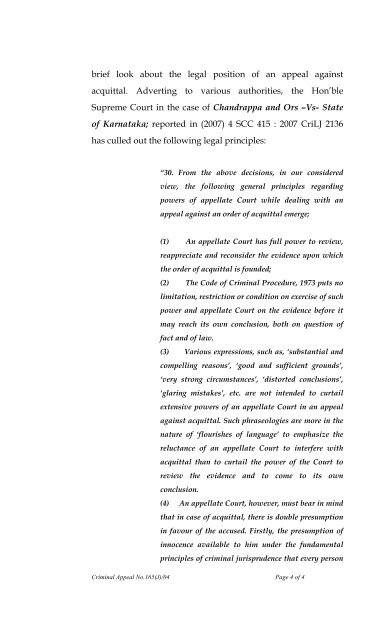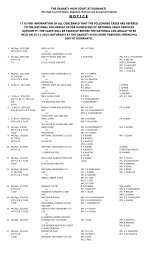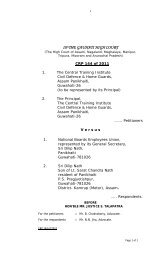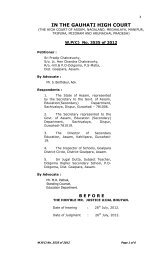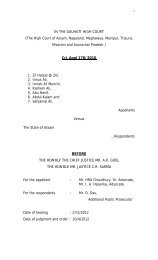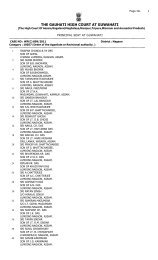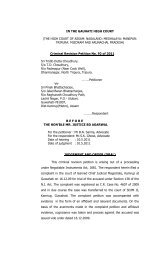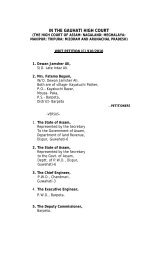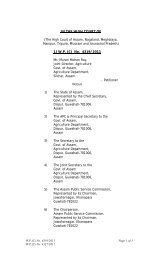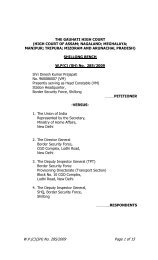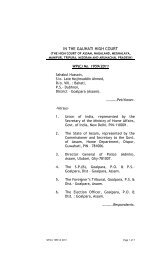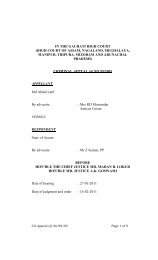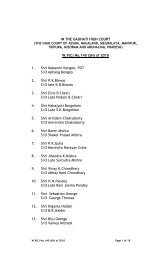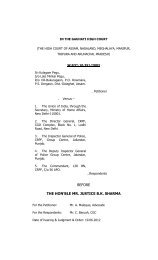Crl.A(J) 165/2004 - Gauhati High Court
Crl.A(J) 165/2004 - Gauhati High Court
Crl.A(J) 165/2004 - Gauhati High Court
Create successful ePaper yourself
Turn your PDF publications into a flip-book with our unique Google optimized e-Paper software.
ief look about the legal position of an appeal against<br />
acquittal. Adverting to various authorities, the Hon’ble<br />
Supreme <strong>Court</strong> in the case of Chandrappa and Ors –Vs- State<br />
of Karnataka; reported in (2007) 4 SCC 415 : 2007 CriLJ 2136<br />
has culled out the following legal principles:<br />
“30. From the above decisions, in our considered<br />
view, the following general principles regarding<br />
powers of appellate <strong>Court</strong> while dealing with an<br />
appeal against an order of acquittal emerge;<br />
(1) An appellate <strong>Court</strong> has full power to review,<br />
reappreciate and reconsider the evidence upon which<br />
the order of acquittal is founded;<br />
(2) The Code of Criminal Procedure, 1973 puts no<br />
limitation, restriction or condition on exercise of such<br />
power and appellate <strong>Court</strong> on the evidence before it<br />
may reach its own conclusion, both on question of<br />
fact and of law.<br />
(3) Various expressions, such as, ‘substantial and<br />
compelling reasons’, ‘good and sufficient grounds’,<br />
‘very strong circumstances’, ‘distorted conclusions’,<br />
‘glaring mistakes’, etc. are not intended to curtail<br />
extensive powers of an appellate <strong>Court</strong> in an appeal<br />
against acquittal. Such phraseologies are more in the<br />
nature of ‘flourishes of language’ to emphasize the<br />
reluctance of an appellate <strong>Court</strong> to interfere with<br />
acquittal than to curtail the power of the <strong>Court</strong> to<br />
review the evidence and to come to its own<br />
conclusion.<br />
(4) An appellate <strong>Court</strong>, however, must bear in mind<br />
that in case of acquittal, there is double presumption<br />
in favour of the accused. Firstly, the presumption of<br />
innocence available to him under the fundamental<br />
principles of criminal jurisprudence that every person<br />
Criminal Appeal No.<strong>165</strong>(J)/04 Page 4 of 4


